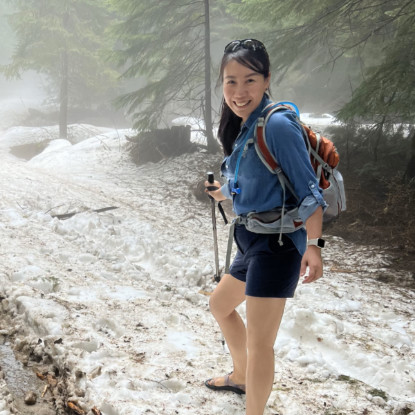Event Details
Date & Time
Wednesday, Sep 04, 2024 6:00 PM
Event Link
Cost
Free and open to the public
Location
Hemmingson Auditorium, Gonzaga University and livestreaming online
Contact/Registration
Event Type & Tags
Register for the Event
About This Event
About the speaker: Dr. Bi Zhao is an Assistant Professor of Political Science at Gonzaga University. Her research interests include non-state actors in global climate change governance and transnational human rights advocacy. In particular, she focuses on the role and participation of historically marginalized peoples in climate change politics and policymaking. She received her PhD in Political Science from Purdue University. Her work was published in the Journal of Human Rights, Environmental Policy and Governance, among others.
Abstract: Civil society organizations (CSO) have become indispensable actors in global climate governance. Since its founding in 1992, the Conferences of the Parties (COPs) of the United Nations Framework Convention on Climate Change (UNFCCC) have been a central venue for CSOs to define and construct the meaning of climate change. Over the years, many CSOs have framed climate change as a social justice issue that intersects with gender inequality and indigenous peoples' rights violations. In our book, we examine the different ways in which civil society groups advocate for justice at UNFCCC COPs. We focus on two communities, the women's groups and the indigenous peoples, and investigate how each constructs a frame around climate change. We argue that these groups develop frames through two forms of interest representation: self-representation and crossover-representation. We find that women’s groups are self-representative in that they focus on gender framing to lead and shape gender discourse at UNFCCC. This self-representation is motivated by the saturation of gender discourse. By contrast, indigenous framing indicates crossover-representation, where both indigenous peoples’ organizations and other CSOs specialized in issues like forestry and health participate in indigenous peoples’ advocacy. Crossover-representation is motivated by the low density of organizations specialized in indigenous peoples. We adopt a mixed-methods approach to analyze CSOs’ framing efforts. First, we use Twitter (X) data to empirically observe variations in the use of frames among CSOs. We then conduct in-depth interviews with CSOs to learn about their understanding of climate change discourse and the motivation to shape it.

